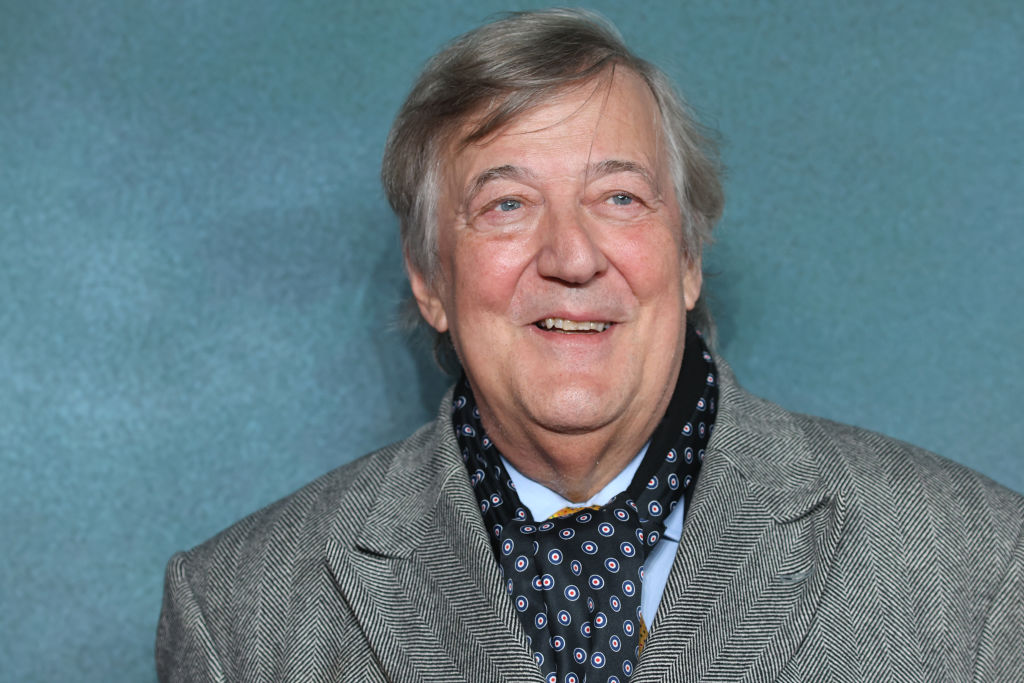There has been much indignation at the roll-call of those ennobled in the New Year Honours. There’s been bewilderment that Gareth Southgate, England’s failed football coach, has been given a knighthood. There’s been anger that Sadiq Khan, who has presided over an escalation of knife crime in the capital, has been similarly honoured. There’s been puzzlement that Emily Thornberry, whose foremost distinction has been sneering at working-class displays of patriotism, has been made a dame. And there’s been gnashing of teeth that Stephen Fry, that ubiquitous and often grating luvvie, has been given the title ‘Sir’.
Much of the vehemence directed towards Fry has focused on his longstanding support for Stonewall, and echoing its stance on trans ideology. In 2018, for instance, he referred to women protesting at Pride about the erasure of lesbians as ‘pretty damned sick’, judging their claims as ‘some screwed up contempt for the rights of trans and intersex people.’
And while he appeared to recant last month his support of the charity, criticising Stonewall as ‘nonsensical’ and ‘stuck in a terrible, terrible, quagmire’, he still appears to uphold the idea that children can be born in the ‘wrong body’. Referring to comedians who mock this conceit, Fry added: ‘I mean does no one have sympathy for some poor child who believes they are born into the wrong body? This has happened for thousands of years.’
Stephen Fry is someone who has achieved. Loads
Others, such as the journalist Suzanne Moore, have accused Fry of opportunism here, speaking out in opposition to trans ideology only now that it’s no longer unfashionable to do so. Many on social media have hastened to remind us that he once wrote a play celebrating a relationship between a teacher and a 13-year-old.
This wouldn’t be the first time his political pronouncements have appeared shallow and expedient. In May last year he jumped on the bandwagon of those denouncing the Garrick Club’s policy of not admitting women, a policy that had been long-established even when he joined the London institution.
It’s true that Fry’s past views on the trans issue are wretched, but he was by no means the only figure to have been caught up in the madness. And one may well question the sincerity of his tentative U-turn on the matter, but supposing we give him the benefit of the doubt, should he not be applauded for changing his mind?
In an age of fierce convictions – some of which are held stubbornly to the point of fanaticism – we need more than ever the virtues of doubt and open-mindedness. The capacity and courage to change one’s mind is something to be applauded and encouraged. Trans ideology itself epitomises our era of dogma and the menace posed by those armed with iron certitudes, and we should welcome the spectacle of a ‘national treasure’ speaking out against group-think.
Yet being a ‘national treasure’ has always been part of the problem with Stephen Fry. For many he is the epitome of a fawning, twee, superficial ‘luvvie’. His reaction to his knighthood only confirmed the judiciousness of this perception. He said he was ‘startled and enchanted’, protesting that the news came ‘out of the blue’. His ennoblement proved that ‘there’s always hope’ for those like himself who suffer from mental health problems – Fry has bipolar disorder – and he avowed that he would aspire in future to be ‘gallant, chivalrous and courteous’, these being ‘all knightly qualities’.
For all his past foibles, irksome personal ticks and gushing effusions – and for the all the protestations of the past few days – Stephen Fry is still held in broad affection. Even his fiercest detractors will recall some of his past performances with fondness: as the foppish Lord Snot in The Young Ones, as the deranged General Melchett in Blackadder Goes Forth, or for his peerless depiction of P. G. Wodehouse’s legendary valet in the 1990s ITV series Jeeves and Wooster, even when he was far too young for the part. This is not to mention his helmsmanship of the comedy panel show QI for years, where he wasn’t shy of flaunting his erudition, wit and sagacity.
Such ostentatious displays of cleverness were not only intrinsic to the programme’s format and popularity, but inherent to Stephen Fry the man. Showing-off is part of his character and temperament – as it is all actors. And notwithstanding his lapses into luvviedom, Stephen Fry is a genuine public intellectual, polymath and aesthete: actor, comedian, author, journalist, presenter. In an age of shallowness, ephemera and triviality he stands for high-mindedness and unashamed learning.
Ultimately, as his catalogue and variety of performances and achievements lays bare, Stephen Fry is someone who has achieved. Loads. The same cannot be said for the gallery of public failures and mediocrities elsewhere ennobled in the New Year. They really do deserve our disdain.







Comments